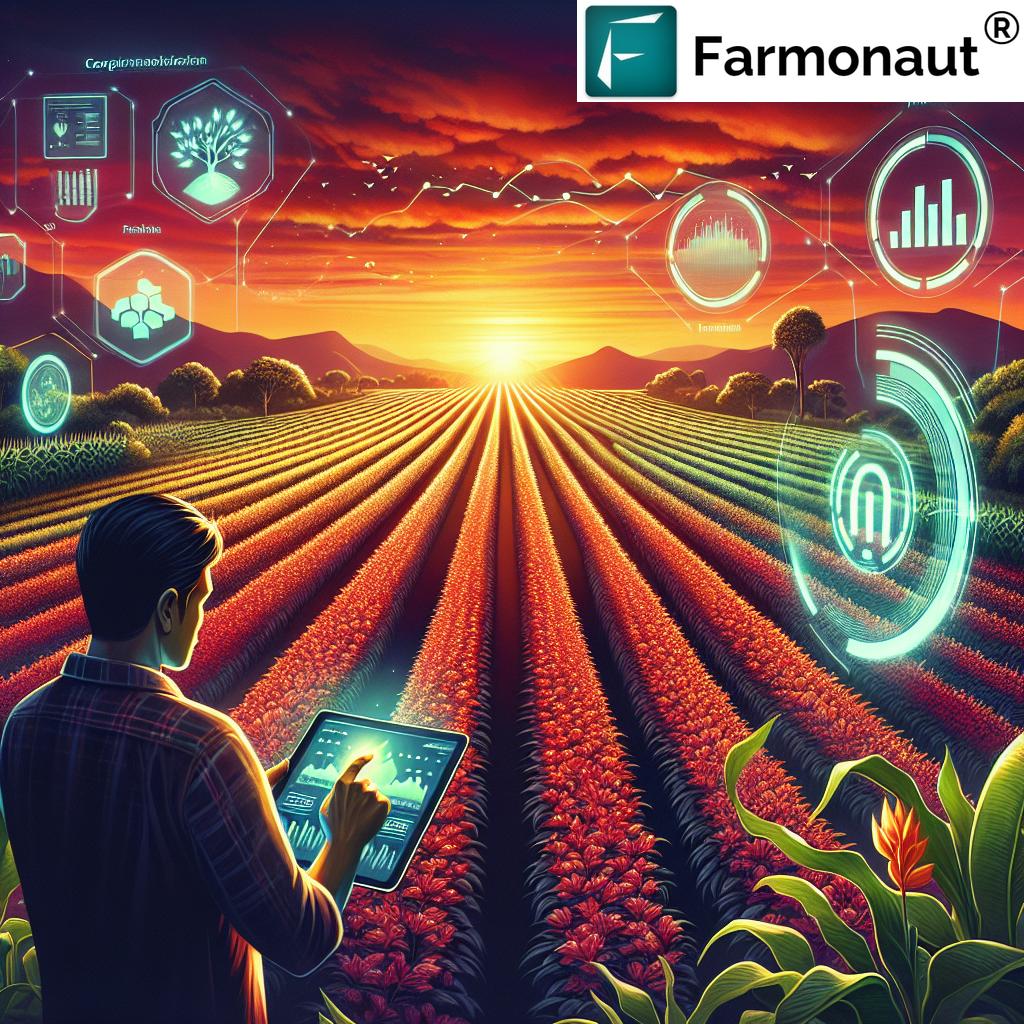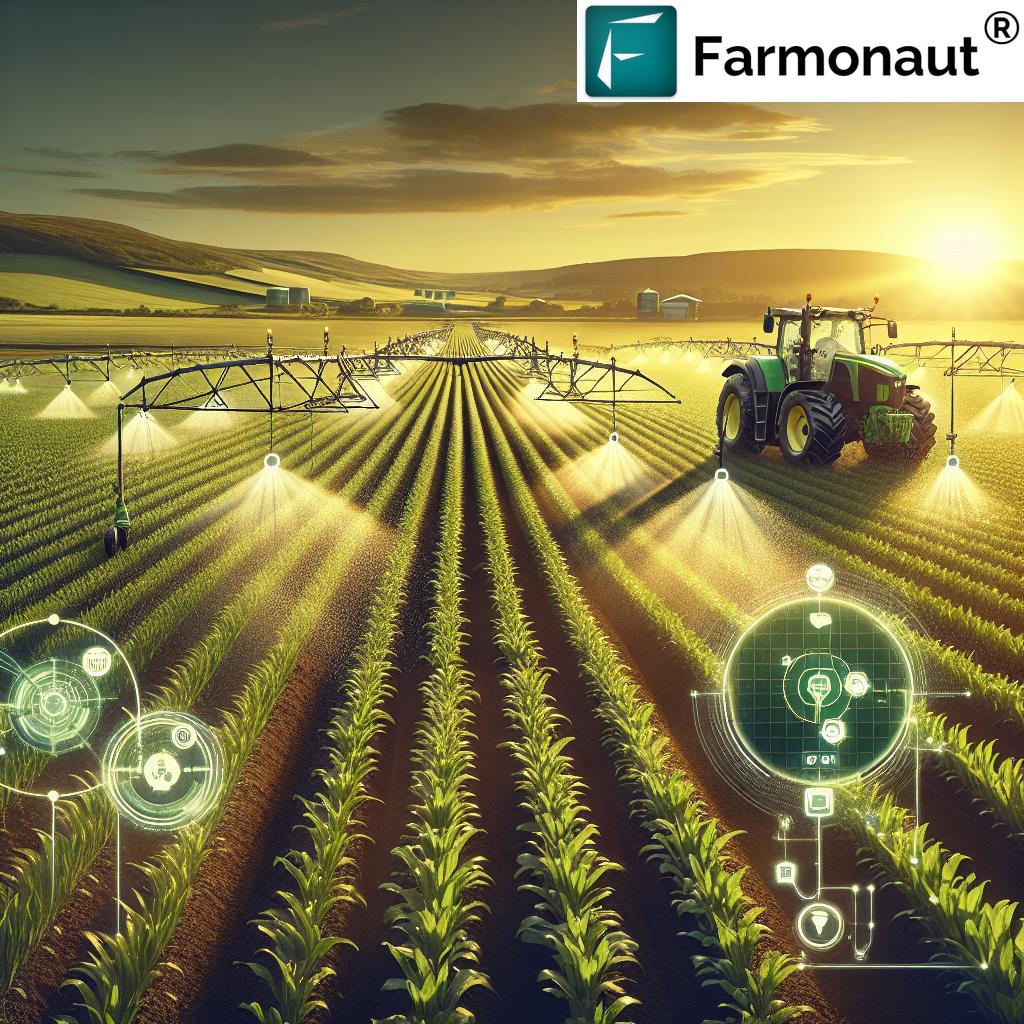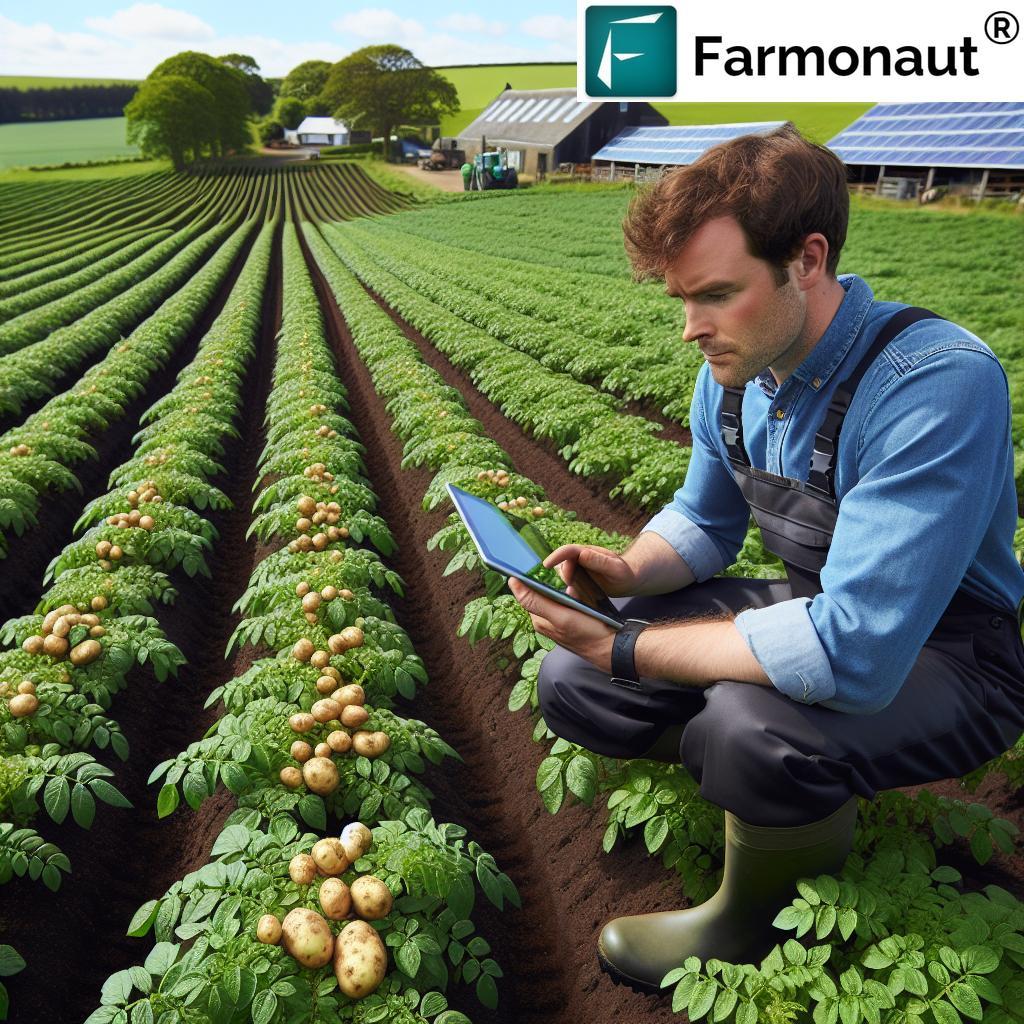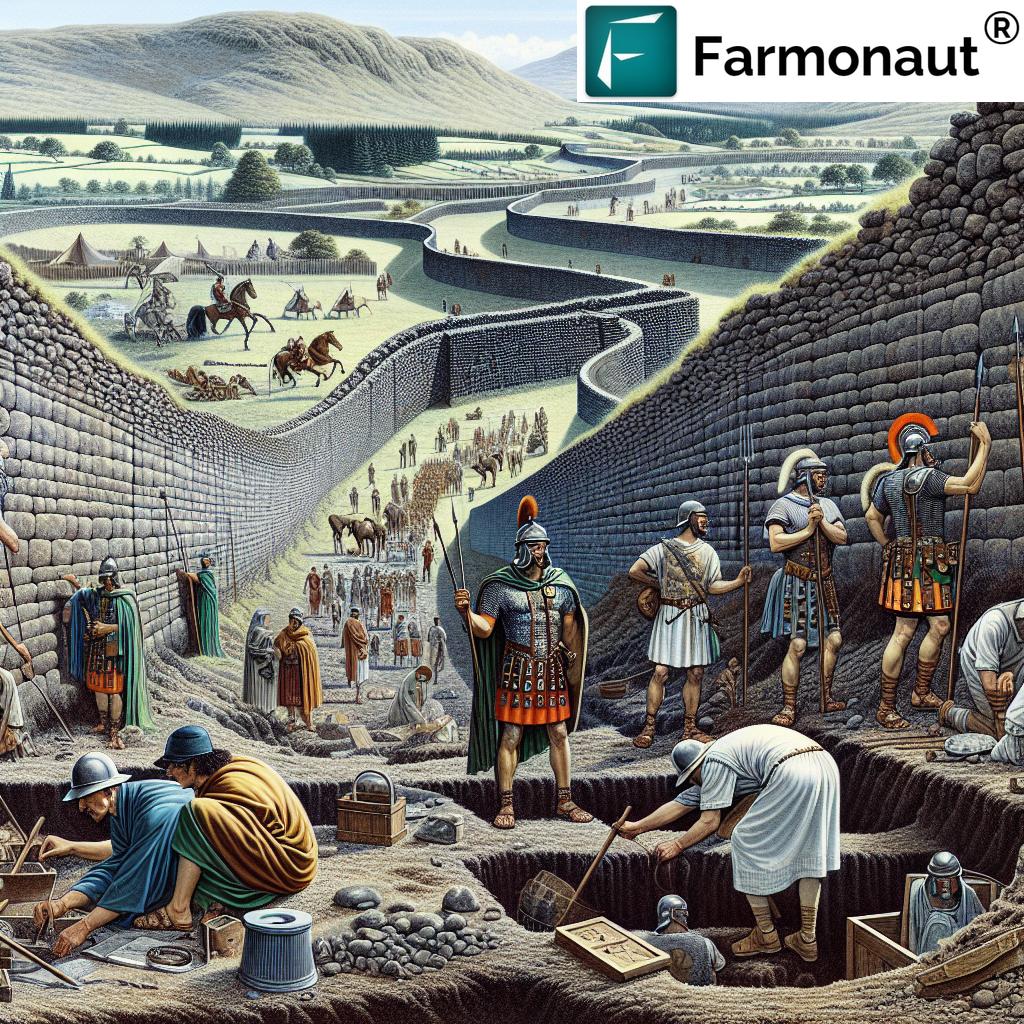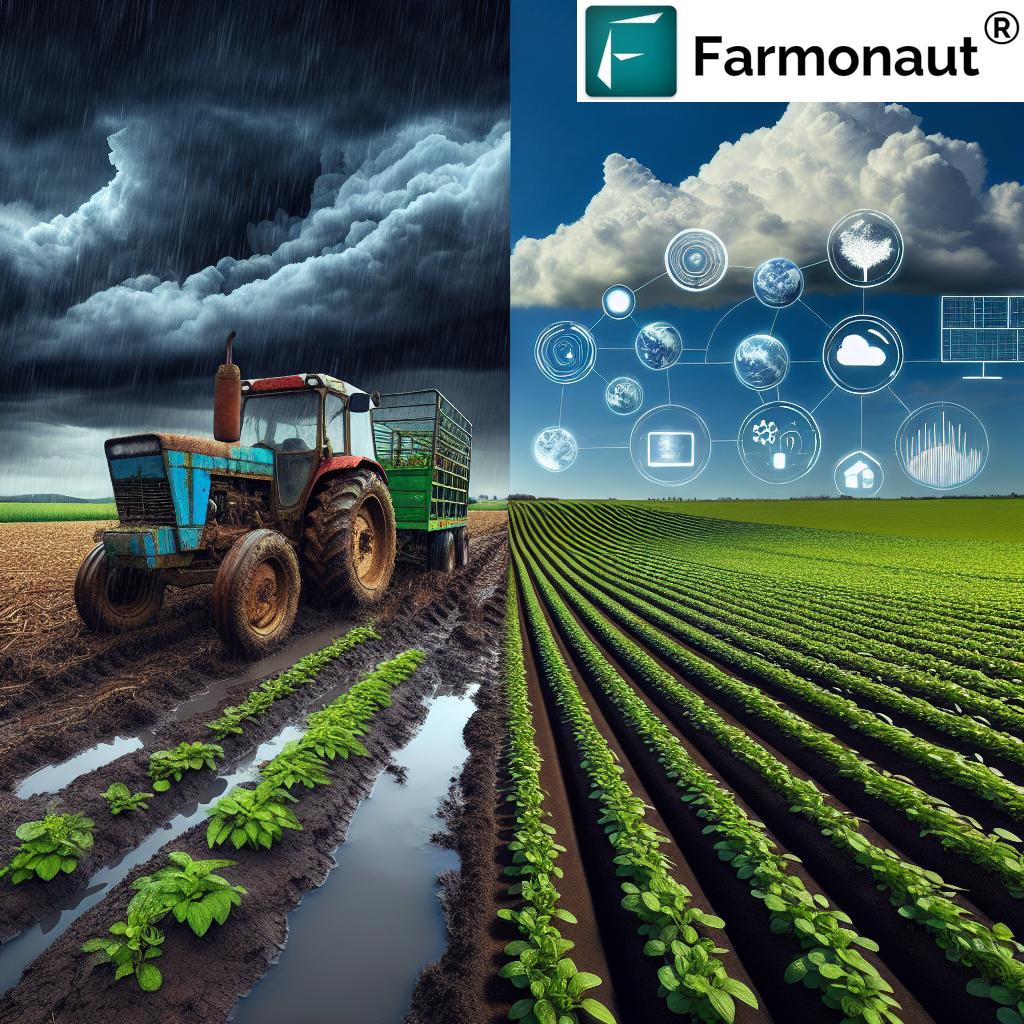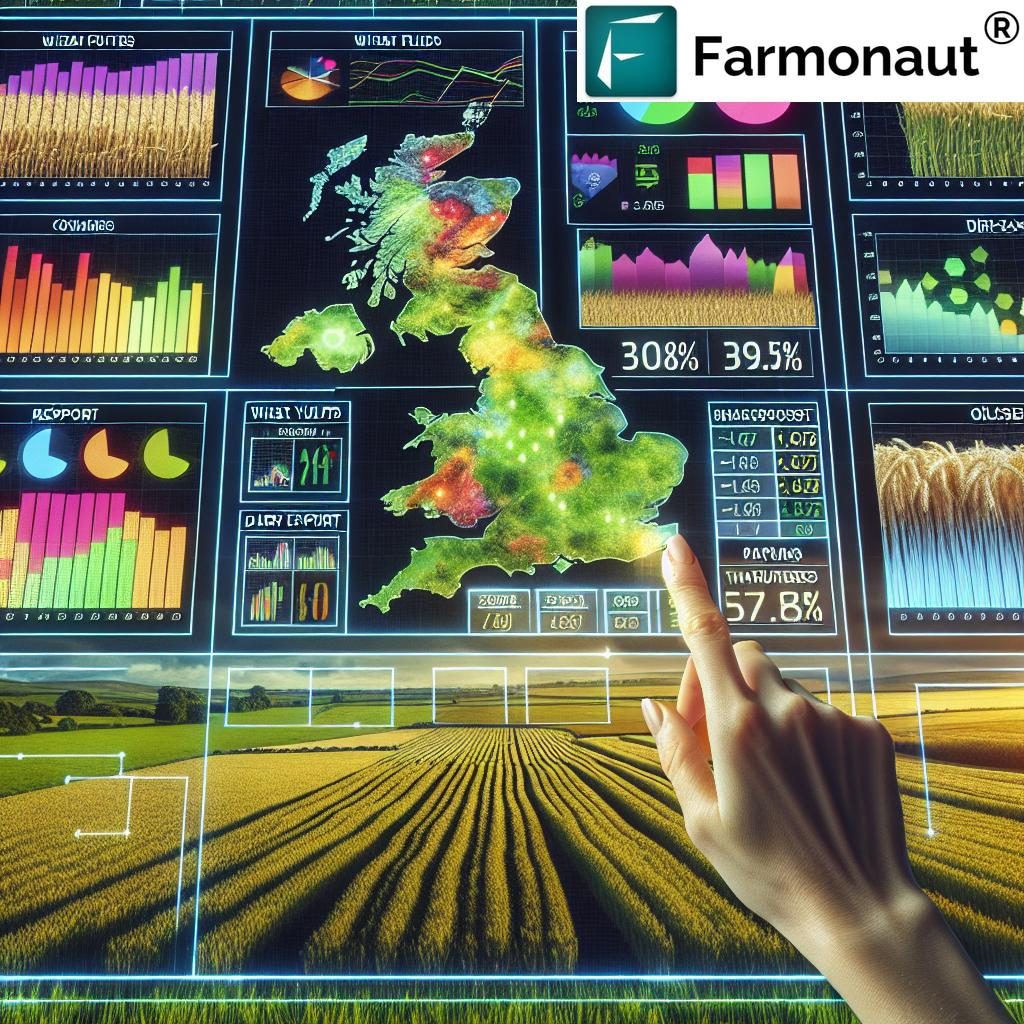Revolutionizing Cambridgeshire Farms: Smart Irrigation and GIS Solutions for Sustainable Agriculture
In the heart of rural England, Cambridgeshire’s farmers are embracing a transformation that’s reshaping the agricultural landscape. We’re witnessing a revolution in farming practices, where precision agriculture technology and sustainable farming practices are becoming the norm rather than the exception. From the rolling hills of Northumberland to the fertile plains of Worcestershire, farmers across England and Wales are adopting smart irrigation systems and innovative farm equipment to enhance crop management and livestock care.
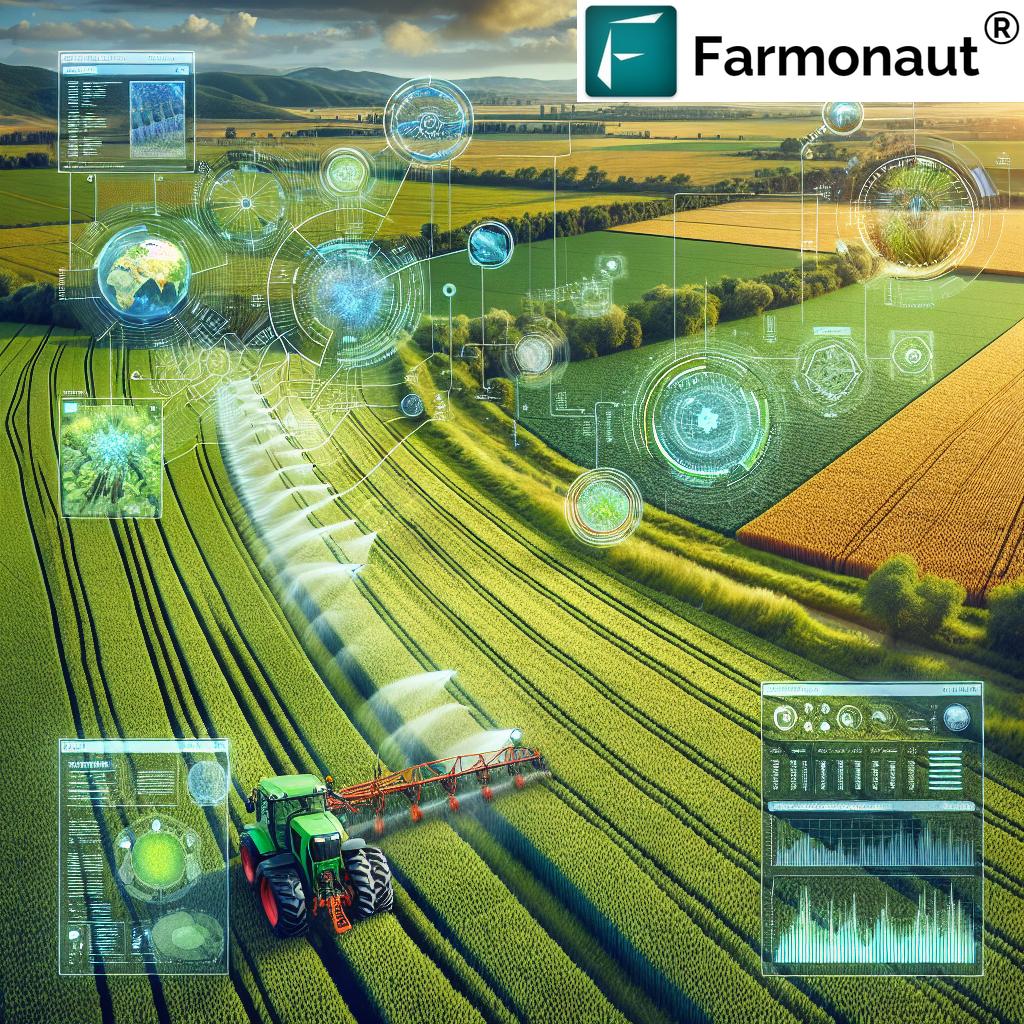
As we delve into this exciting new era of farming, we’ll explore how agricultural GIS applications and drone technology are revolutionizing farm data analytics, enabling more efficient land use and crop diversification. Join us as we uncover the cutting-edge soil health monitoring techniques that are transforming grassland management and arable farming across the region.
“GIS applications in agriculture can increase crop yields by up to 30% through precise resource management.”
The Dawn of Smart Farming in Cambridgeshire
Cambridgeshire, with its rich agricultural heritage, is at the forefront of adopting precision agriculture technology. Farmers in this region are increasingly turning to smart irrigation systems and GIS solutions to optimize their operations. These technologies are not just improving crop yields; they’re also promoting sustainable farming practices that are crucial for the future of agriculture.
- Smart Irrigation Systems: Gone are the days of guesswork in watering crops. Today’s farmers are using sensor-based irrigation systems that provide real-time data on soil moisture levels.
- GIS in Agriculture: Geographic Information Systems (GIS) are transforming how farmers view and manage their land. By integrating satellite imagery, soil data, and crop information, GIS helps in making informed decisions about planting, fertilizing, and harvesting.
- Drone Technology: Aerial surveys using drones equipped with multispectral cameras are becoming commonplace, allowing farmers to monitor crop health with unprecedented precision.
The integration of these technologies is not just a trend; it’s a necessity for modern farming. As we face challenges like climate change and the need for increased food production, these smart solutions are proving to be invaluable tools in the farmer’s arsenal.
Precision Agriculture: A Game-Changer for Crop Management
Precision agriculture is revolutionizing crop management in Cambridgeshire and beyond. By leveraging data from various sources, farmers can make highly informed decisions about every aspect of their operations.
- Variable Rate Technology (VRT): This allows farmers to apply different amounts of inputs like fertilizers and pesticides to different parts of a field based on specific needs.
- Soil Health Monitoring: Advanced sensors and sampling techniques provide detailed insights into soil composition, allowing for tailored nutrient management.
- Crop Monitoring: Satellite imagery and drone surveys help in early detection of crop stress, pest infestations, and disease outbreaks.
These technologies are not just improving yields; they’re also promoting more sustainable farming practices by optimizing resource use and reducing environmental impact.
Smart Irrigation: Water Management in the 21st Century
Water is a precious resource, and in agriculture, its efficient use is paramount. Smart irrigation systems are transforming how farmers in Cambridgeshire and across England manage water resources.
- Soil Moisture Sensors: These devices provide real-time data on soil moisture levels, allowing for precise irrigation scheduling.
- Weather-Based Controllers: By integrating local weather forecasts, these systems can adjust irrigation schedules to avoid watering before or during rainfall.
- Drip Irrigation: This precise method delivers water directly to plant roots, significantly reducing water waste.
The implementation of these smart irrigation systems can lead to water savings of up to 50%, a crucial factor in sustainable farming practices.
“Smart irrigation systems can reduce water usage on farms by 20-50%, promoting sustainable agriculture in Cambridgeshire.”
GIS Applications in Agriculture: Mapping the Future of Farming
Geographic Information Systems (GIS) are providing farmers with unprecedented insights into their land and crops. In Cambridgeshire, these tools are being used to:
- Create Detailed Field Maps: Showing variations in soil type, elevation, and other crucial factors.
- Plan Crop Rotations: By analyzing historical data and current field conditions.
- Optimize Resource Allocation: Ensuring that fertilizers, pesticides, and water are used efficiently across different parts of a farm.
GIS technology, combined with data from satellites and drones, is enabling farmers to make data-driven decisions that were impossible just a few years ago.
Explore Farmonaut’s GIS solutions: Web App | Android App | iOS App


Livestock Management: High-Tech Solutions for Animal Care
The benefits of precision agriculture aren’t limited to crop farming. In Cambridgeshire’s dairy and livestock sectors, innovative technologies are improving animal welfare and productivity.
- GPS Tracking: Helps monitor grazing patterns and animal movement.
- Health Monitoring Devices: Wearable sensors can track vital signs and alert farmers to potential health issues.
- Automated Feeding Systems: Ensure animals receive the right amount of feed at the right times.
These technologies not only improve the efficiency of livestock management but also contribute to better animal health and welfare.
Soil Health: The Foundation of Sustainable Farming
Maintaining soil health is crucial for sustainable agriculture, and farmers in Cambridgeshire are adopting advanced techniques to monitor and improve their soil:
- Soil Sensors: Provide real-time data on soil moisture, temperature, and nutrient levels.
- Spectral Analysis: Uses light reflectance to assess soil composition and organic matter content.
- Biochar Application: An emerging technique for improving soil structure and carbon sequestration.
These methods not only enhance crop yields but also contribute to long-term soil health and sustainability.
Drone Technology: A Bird’s-Eye View of Farm Management
Drones are becoming an indispensable tool for modern farmers in Cambridgeshire. They offer a range of applications:
- Crop Monitoring: High-resolution imagery can detect early signs of crop stress or disease.
- Precision Spraying: Drones can apply pesticides and fertilizers with pinpoint accuracy.
- Livestock Tracking: Aerial surveys help in monitoring herd movements and identifying lost animals.
The use of drones in agriculture is not just about efficiency; it’s about gaining insights that were previously impossible to obtain.
Discover Farmonaut’s drone-integrated solutions: Explore Now

Farm Data Analytics: Turning Information into Action
The wealth of data generated by modern farming technologies is only valuable if it can be effectively analyzed and acted upon. Farm data analytics platforms are helping Cambridgeshire farmers make sense of this information:
- Yield Forecasting: By analyzing historical data and current conditions, farmers can make more accurate yield predictions.
- Resource Optimization: Data analytics help in fine-tuning the use of water, fertilizers, and pesticides.
- Financial Planning: Better data leads to more informed financial decisions and risk management.
These analytical tools are turning farms into data-driven enterprises, improving both productivity and profitability.
Crop Diversification: Balancing Risk and Reward
Precision agriculture technologies are enabling Cambridgeshire farmers to diversify their crops more effectively:
- Microclimate Analysis: GIS and weather data help identify suitable areas for new crops.
- Intercropping Strategies: Data-driven approaches to combining complementary crops.
- Market Analysis Tools: Help farmers make informed decisions about which crops to grow based on market trends.
Crop diversification not only spreads risk but also contributes to biodiversity and soil health.
Pest and Disease Management: Precision in Protection
Advanced technologies are revolutionizing how farmers in Cambridgeshire tackle pest and disease challenges:
- Early Detection Systems: Drones and satellite imagery can spot signs of infestation before they become visible to the naked eye.
- Targeted Treatment: Precision spraying techniques reduce pesticide use by applying treatments only where needed.
- Biological Control Methods: Data-driven approaches to introducing beneficial insects and microorganisms.
These methods not only improve crop protection but also reduce the environmental impact of pest control measures.
The Future of Farming Equipment: Smarter, Greener, More Efficient
The evolution of farm machinery is a crucial part of the agricultural revolution in Cambridgeshire:
- Autonomous Tractors: Self-driving tractors can work around the clock with precision.
- Smart Implements: Planters, cultivators, and harvesters with built-in sensors and data processing capabilities.
- Electric and Hybrid Machinery: Reducing carbon footprint and operating costs.
These advancements in farm equipment are not just about efficiency; they’re about creating a more sustainable and productive agricultural sector.
Sustainable Farming Practices: A Holistic Approach
The integration of precision agriculture technologies in Cambridgeshire is part of a broader move towards sustainable farming practices:
- Conservation Tillage: Minimizing soil disturbance to improve soil health and reduce erosion.
- Cover Cropping: Using data to optimize cover crop selection and management.
- Integrated Pest Management: Combining technology with ecological principles to control pests with minimal environmental impact.
These practices, enhanced by precision agriculture technologies, are helping Cambridgeshire farmers reduce their environmental footprint while maintaining productivity.
Learn more about sustainable farming with Farmonaut: API | API Developer Docs
Comparing Traditional and Smart Farming Practices
| Aspect | Traditional Farming | Smart Farming with GIS and Precision Agriculture |
|---|---|---|
| Irrigation Methods | Fixed schedule watering | Sensor-based, targeted irrigation (20-50% water savings) |
| Crop Monitoring | Visual inspection | Satellite and drone imagery analysis (30% yield increase) |
| Pest Management | Blanket pesticide application | Targeted, data-driven pest control (50% reduction in pesticide use) |
| Soil Health Analysis | Annual soil testing | Real-time soil sensors and spectral analysis |
| Resource Efficiency | Uniform application of inputs | Variable rate technology for optimized resource use (25% increase in efficiency) |
The Role of Farmonaut in Revolutionizing Cambridgeshire Farming
Farmonaut is at the forefront of this agricultural revolution, offering cutting-edge solutions that are transforming farming in Cambridgeshire and beyond. Our satellite-based farm management solutions provide invaluable tools for precision agriculture, enabling farmers to make data-driven decisions that optimize their operations.
- Real-Time Crop Health Monitoring: Our platform uses multispectral satellite images to provide up-to-date information on crop health, helping farmers identify and address issues promptly.
- AI-Powered Advisory System: The Jeevn AI system offers personalized recommendations based on real-time data, weather forecasts, and expert knowledge.
- Blockchain-Based Traceability: Ensuring transparency and trust in the agricultural supply chain.
- Resource Management Tools: Our solutions help farmers optimize their use of water, fertilizers, and other inputs, promoting sustainability and efficiency.
By making precision agriculture affordable and accessible, Farmonaut is helping Cambridgeshire farmers embrace the future of farming, improving productivity while promoting sustainable practices.
Frequently Asked Questions
- How does precision agriculture benefit Cambridgeshire farmers?
Precision agriculture helps farmers optimize resource use, increase yields, reduce environmental impact, and make data-driven decisions, leading to more sustainable and profitable farming practices. - What are the key technologies driving smart farming in Cambridgeshire?
The main technologies include GIS applications, smart irrigation systems, drone technology, soil sensors, and farm data analytics platforms. - How does Farmonaut contribute to sustainable agriculture in the region?
Farmonaut provides satellite-based crop monitoring, AI-powered advisory systems, and resource management tools that help farmers optimize their operations and reduce environmental impact. - Can small-scale farmers in Cambridgeshire benefit from precision agriculture?
Yes, many precision agriculture technologies, including Farmonaut’s solutions, are scalable and can be adapted for use on small farms, making them accessible to a wide range of farmers. - How does smart irrigation contribute to water conservation in farming?
Smart irrigation systems use real-time data and weather forecasts to optimize watering schedules, reducing water waste by up to 50% compared to traditional methods.
As we look to the future of farming in Cambridgeshire and across rural England and Wales, it’s clear that the integration of smart irrigation systems, GIS solutions, and other precision agriculture technologies will play a crucial role. These innovations are not just improving productivity and efficiency; they’re paving the way for a more sustainable and resilient agricultural sector.
By embracing these technologies, Cambridgeshire farmers are not only securing their own futures but also contributing to the broader goals of food security and environmental stewardship. As we continue to face challenges such as climate change and resource scarcity, the smart, data-driven approach to farming exemplified in Cambridgeshire will become increasingly important.
The revolution in farming practices we’re witnessing today is just the beginning. With ongoing advancements in technology and a growing commitment to sustainable agriculture, the future of farming in Cambridgeshire and beyond looks brighter than ever.


